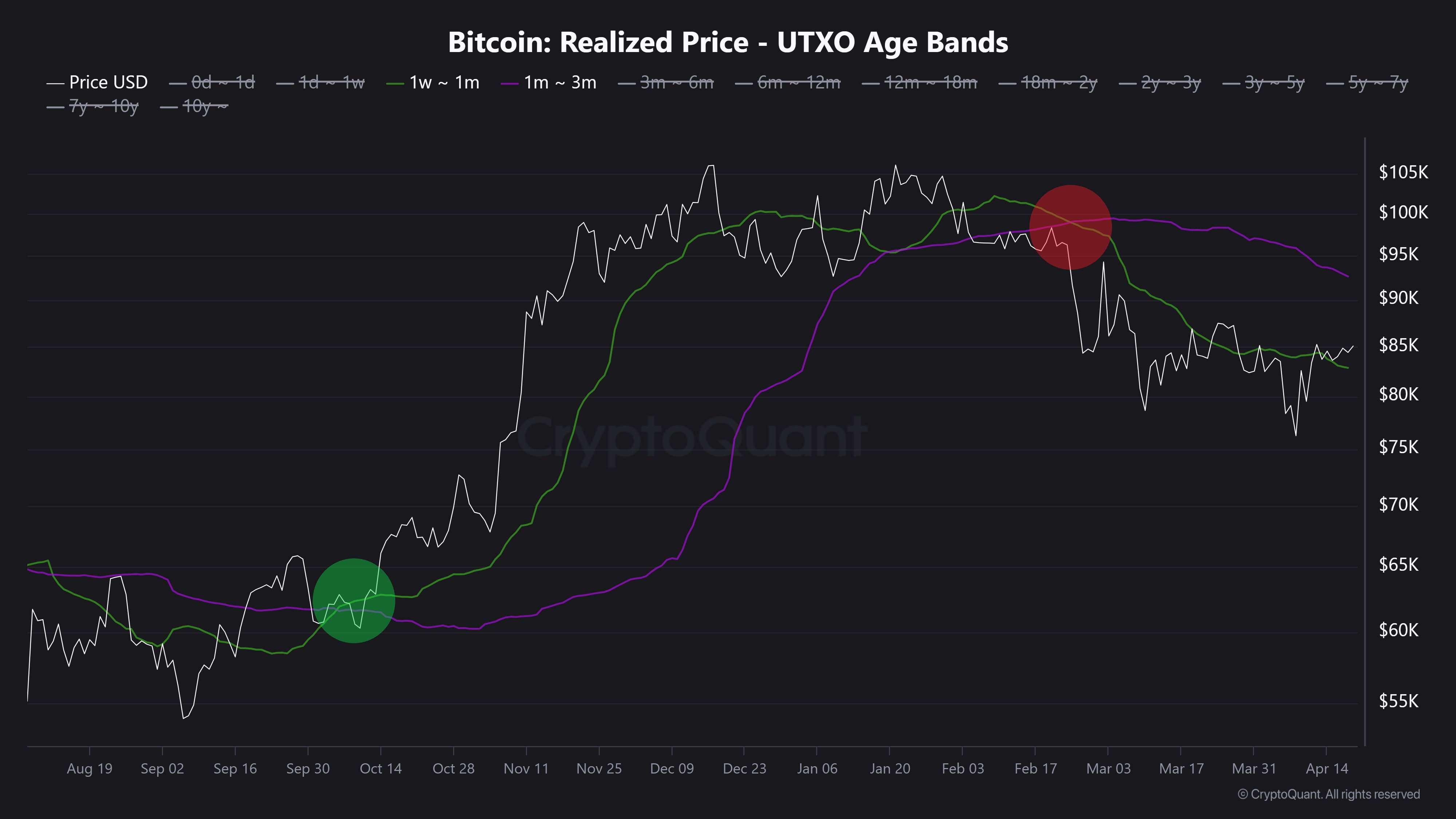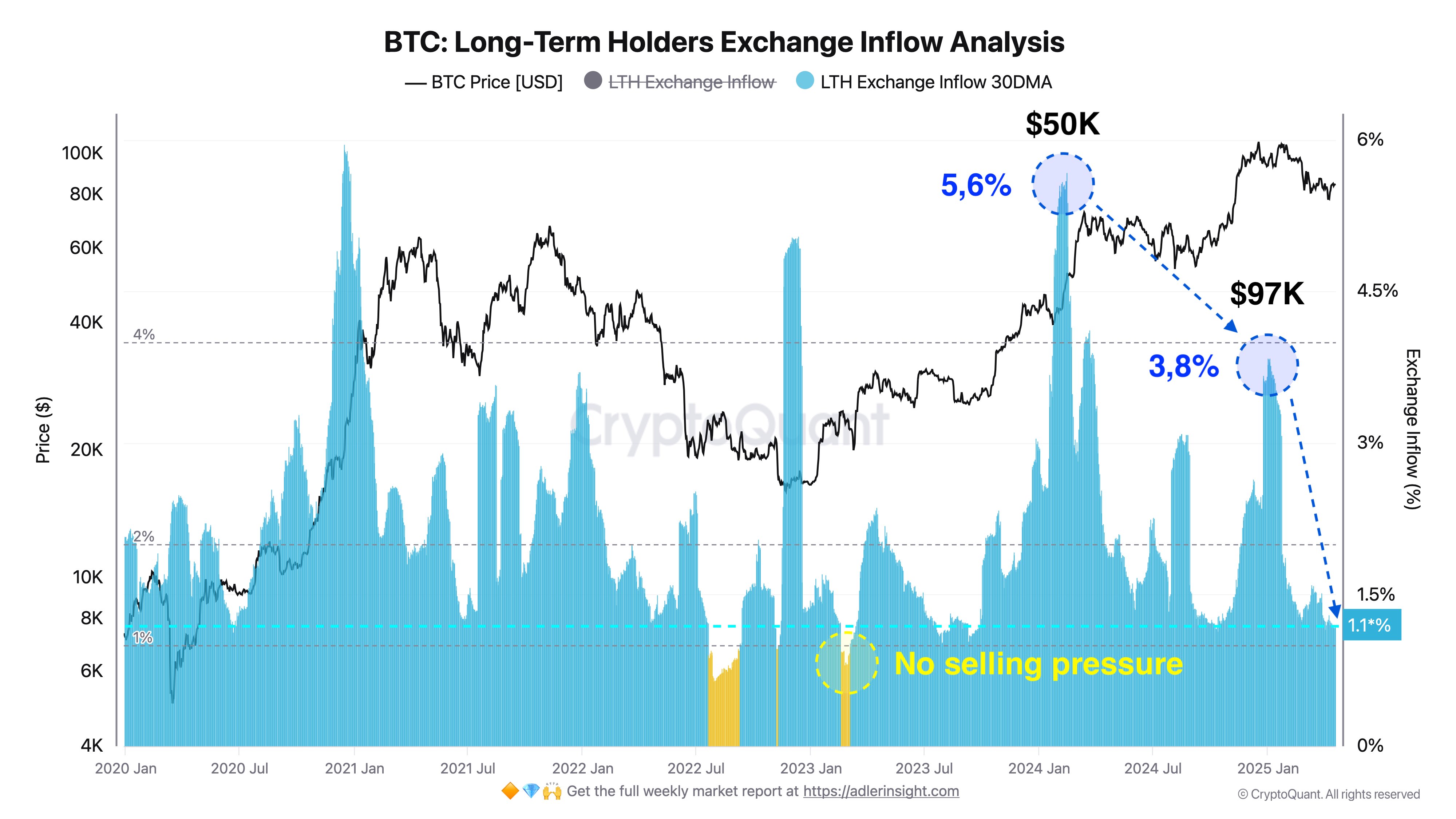Bitcoin
Roger Ver Supporters Call for Clemency after Ulbricht’s Pardon


Elon Musk, who leads President Donald Trump’s Department of Government Efficiency (D.O.G.E), has committed to exploring the pardon of ‘Bitcoin Jesus’ Roger Ver.
It comes after US President Trump recently granted Ross Ulbricht, the founder of the Silk Road, clemency.
Elon Musk to “Inquire” on Roger Ver’s Pardon
Ross Ulbricht’s presidential pardon has ignited a spirited online campaign for the pardon of Roger Ver, another high-profile figure in the crypto arena. As BeInCrypto reported, Ulbricht’s full and unconditional pardon on Tuesday was widely celebrated. Trump called his previous sentence of two life terms “ridiculous.”
Amid the celebratory discussions, however, attention quickly shifted to Bitcoin Jesus. Ray Youssef, an executive at the crypto platform Noonesapp, was among the first to call for Ver’s release.
“Ross is free. A full unconditional pardon has been signed. Thank God. Don’t forget Roger Ver and all the builders who have been through hell,” Youssef said.
Roger Ver was a vocal proponent of Bitcoin Cash and an early adopter of cryptocurrency. He faced legal troubles over tax evasion allegations. Nine months ago, US authorities accused Ver of owing $48 million in taxes, allegedly stemming from his expatriation process.
Ver challenged these charges two months ago, asserting that he relied on expert advice to ensure compliance with the law. His defense also cited constitutional violations, including claims that privileged communications with his legal team were subpoenaed. Critics have argued that this represents overreach and a troubling precedent for attorney-client privilege.
“Please look into a pardon for Roger Ver. That privileged communications with his lawyers were subpoenaed is a terrible precedent for privacy and the ability to defend oneself,” said Naomi Brockwell, founder of Ludlow Institute.
They also say potentially exculpatory evidence was withheld during grand jury proceedings. Meanwhile. Angela McArdle, chair of the Libertarian National Committee, also expressed her support for Ver’s release. Following these calls, Elon Musk said he would inquire about it.
“Will inquire,” Musk tweeted.
Ver’s supporters argue that a pardon would correct a perceived injustice and reinforce the principles of privacy and due process. The parallels with Ulbricht’s case highlight the dangers of excessive sentencing and systemic government overreach. Taken together, these have strengthened the calls for Ver’s pardon.
Elon Musk’s acknowledgment of the issue has brought renewed attention to the case, potentially amplifying the push for clemency. Many hope that his platform, D.O.G.E, and influence will pressure leaders to address what they see as an unjust precedent. This is amidst a broader campaign for freedoms essential to innovation and prosperity in the cryptocurrency space.
“Roger Ver deserves a pardon to liberate him from the malicious prosecution he still faces–lawfare that threatens to take his freedom for 109 years for an exotic crime he *clearly* did not commit. Pardoning Roger is the strongest signal the President could send that Biden’s war on crypto is over. Please, President Trump, Free Roger Ver,” Bret Weinstein lamented.
Meanwhile, others see Bitcoin Jesus’ case as emblematic of the tension between individual liberties and state power.
“Also (preemptively) Roman Storm while you’re at it please Elon Musk. Publishing open-source privacy tools is an act of free speech — not an act in furtherance of a conspiracy. Whatever crimes committed with the software — developers should not be held vicariously liable for them,” another user added.
Disclaimer
In adherence to the Trust Project guidelines, BeInCrypto is committed to unbiased, transparent reporting. This news article aims to provide accurate, timely information. However, readers are advised to verify facts independently and consult with a professional before making any decisions based on this content. Please note that our Terms and Conditions, Privacy Policy, and Disclaimers have been updated.
Bitcoin
Here Are The Bitcoin Levels To Watch For The Short Term


Bitcoin has produced a range-bound movement recently, with prices oscillating between $83,000 and 86,000. Interestingly, popular crypto analyst Burak Kesmeci has identified the important price levels for any short-term action.
Support At 82,800, Resistance At 92,000 – But Where Is Bitcoin Headed?
In a new post on X, Kesmeci shared an interesting on-chain analysis of the Bitcoin market. Using the short-term investor cost basis, the analyst identified two key price levels that could prove critical to Bitcoin’s next major move.
Firstly, Burak Kesmeci focuses on the average cost prices of new traders over the past 1-4 weeks, which are likely the most reactive to price changes. The realized price for these traders currently stands at $82,800, forming a near-term support that indicates many recent buyers are still in profit and may defend this level as a psychological floor.
Meanwhile, Kesmeci also highlights the $92,000 price level, which marks the average cost basis for BTC holders for 1-3 months. This price point has emerged as an important resistance zone, as investors are likely to exit the market once they break even. Furthermore, the $92,000 price level is also marked by a confluence with various technical indicators.

The interplay between these two levels is significant. Historically, short-term bullish trends in BTC tend to begin when the cost basis of more recent investors, 1–4 weeks, crosses above that of the 1–3 BTC holders. This shift signals increased confidence and willingness to buy at higher levels, which often fuels broader rallies.
However, that dynamic remains to play out in the current market. As of now, Bitcoin is trading around 85,000, positioning it above its support at the 1–4 week average of $82,800 but still below the 1–3 month resistance of $92,000. Furthermore, both cost basis levels have been declining over the past two months, reflecting hesitation or a lack of aggressive buying from new entrants.
Notably, Kesmeci states that BTC must surge above $92,000 to confirm a strong bullish momentum for a price reversal.
Bitcoin ETFs Offload 1,725 BTC
In other news, Ali Martinez reports that the Bitcoin ETFs have suffered withdrawals of 1,725 Bitcoin, valued at $146.92 million, over the past week. This development illustrates a high level of negative sentiment among institutional investors, adding to market uncertainty around the BTC market.
Meanwhile, Bitcoin trades at $85,249 following a price change of 0.89% in the past day. The premier cryptocurrency also reflects a 0.58% loss on the weekly chart and a 1.06% gain on a monthly chart.
Feature image from Adobe Stock, chart from Tradingview

Editorial Process for bitcoinist is centered on delivering thoroughly researched, accurate, and unbiased content. We uphold strict sourcing standards, and each page undergoes diligent review by our team of top technology experts and seasoned editors. This process ensures the integrity, relevance, and value of our content for our readers.
Bitcoin
Bitcoin LTH Selling Pressure Hits Yearly Low — Bull Market Ready For Take Off?


Following an extensive price correction in the past three months, the Bitcoin bull market continues to hang in the balance. Despite a modest price rebound in April, the premier cryptocurrency is yet to display a strong intent to resume its bull rally amidst a lack of positive market factors. However, crypto analyst Axel Adler Jr. has highlighted a promising development that could signal major upside potential for Bitcoin.
Bitcoin Long-Term Holders Looking To Halt Selling Pressure
In a recent post on X, Adler Jr. shared an important update in Bitcoin long-term holders (LTH) activity, which could prove significantly positive for the broader BTC market.
Using on-chain data from CryptoQuant, the renowned analyst reports that selling pressure by long-term holders, i.e. amount of LTH holdings on exchanges, has now hit its lowest point at 1.1% over the past year. This development indicates that Bitcoin LTH are now opting to hold on to their assets rather than take profits.

Adler explains that a further decline in these LTH exchange holdings to 1.0% would signal the total absence of selling pressure. Notably, this development could encourage new market entry and sustained accumulation, creating a strong bullish momentum in the BTC market.
Importantly, Alder highlights that the majority of the Bitcoin LTH entered the market at an average price of $25,000, Since then, CryptoQuant has recorded the highest LTH selling pressure of 5.6% at $50,000 in early 2024 and 3.8% at $97,000 in early 2025.
According to Adler, these two instances likely represent the primary profit-taking phases for long-term holders who intended to exit the market. Therefore, a resurgence in selling pressure from this cohort of BTC investors is unlikely in the short-term, which supports a building bullish case as long-term holders currently control 77.5% of Bitcoin in circulation.
BTC Price Overview
At the time of writing, Bitcoin was trading at $85,226 following a 0.36% gain in the past day and a 0.02% loss in the past week. Both metrics only reflect the ongoing market consolidation as BTC continues to struggle to achieve a convincing price breakout beyond $86,000.
Meanwhile, the asset’s performance on the monthly chat now reflects a 1.97% gain, indicating a potential trend reversal as the market correction ceases. Nevertheless, BTC remains in need of a strong market catalyst to ignite any sustainable price rally. With a market cap of $1.67 trillion, Bitcoin is ranked as the largest digital asset, controlling 62.9% of the crypto market.
Featured image from Adobe Stock, chart from Tradingview

Editorial Process for bitcoinist is centered on delivering thoroughly researched, accurate, and unbiased content. We uphold strict sourcing standards, and each page undergoes diligent review by our team of top technology experts and seasoned editors. This process ensures the integrity, relevance, and value of our content for our readers.
Bitcoin
Analyst Says Bitcoin Price Might Be Gearing Up For Next Big Move — What To Know


The Bitcoin price seems stuck in a consolidation range, ricocheting off the $83,000 and $86,000 levels over the past week. With no clear direction for the premier cryptocurrency, investors are left wondering what phase the market cycle is in—bullish or bearish.
According to a popular crypto analyst on the social media platform X, the Bitcoin price could be preparing for its next big move in either direction over the next few weeks. In any case, here are the important levels to watch out for in the next few days.
Crucial Levels To Watch For BTC’s Next Move
In an April 19 post on the X platform, crypto analyst Ali Martinez shared an interesting analysis of the Bitcoin price while highlighting the current layout of the world’s largest cryptocurrency by market cap. The online pundit noted that BTC bears and bulls are locked in a battle, leading to a choppy market condition.
Notably, the premier cryptocurrency appears to have entered the $83,000 – $86,000 range on Saturday, April 12. Hence, Martinez’s analysis basically revolves around the price of BTC bouncing off the support and resistance levels on its one-hour timeframe.
Source: @ali_charts on X
As shown in the chart above, the Bitcoin price attempted multiple times to breach the resistance zone around the $86,000 region over the past week. However, the bulls’ optimism was met with the staunch resilience of the Bitcoin bears, as the price of BTC almost always found its way back toward the $83,000 mark.
Most recently, the flagship cryptocurrency made its way toward the $86,000 level on Wednesday, April 16, but failed to break the significant resistance zone after the US Federal Reserve (Fed) chair Jerome Powell suggested that interest rate cuts might not be coming as early as anticipated by crypto traders.
Martinez noted in his post that the next significant move for the Bitcoin price depends primarily on the $83,000 and $86,000 levels. According to the crypto pundit, a breakout above the $86,000 mark could spell the start of a bullish run for Bitcoin, while a break below $83,000 could mean further correction for the market leader.
Bitcoin Price Overview
After reaching its all-time high of $108,786 in January 2025, the price of BTC has been on a steady decline in the past few months. According to data from CoinGecko, the flagship cryptocurrency has losst more than 22% of its value since hitting its record-high price.
As of this writing, the price of Bitcoin stands at around $84,530, reflecting a 0.3% decline in the past 24 hours. Meanwhile, the Bitcoin price is up by more than 1% on the weekly timeframe.
The price of BTC on the daily timeframe | Source: BTCUSDT chart on TradingView
Featured image from iStock, chart from TradingView

Editorial Process for bitcoinist is centered on delivering thoroughly researched, accurate, and unbiased content. We uphold strict sourcing standards, and each page undergoes diligent review by our team of top technology experts and seasoned editors. This process ensures the integrity, relevance, and value of our content for our readers.
-

 Altcoin24 hours ago
Altcoin24 hours agoUniswap Founder Urges Ethereum To Pursue Layer 2 Scaling To Compete With Solana
-

 Ethereum20 hours ago
Ethereum20 hours agoEthereum Consolidates In Symmetrical Triangle: Expert Predicts 17% Price Move
-

 Market20 hours ago
Market20 hours agoToday’s $1K XRP Bag May Become Tomorrow’s Jackpot, Crypto Founder Says
-

 Market14 hours ago
Market14 hours ago1 Year After Bitcoin Halving: What’s Different This Time?
-

 Market18 hours ago
Market18 hours agoMELANIA Crashes to All-Time Low Amid Insiders Continued Sales
-

 Altcoin23 hours ago
Altcoin23 hours agoWhat’s Up With BTC, XRP, ETH?
-

 Ethereum22 hours ago
Ethereum22 hours agoEthereum Accumulators At A Crucial Moment: ETH Realized Price Tests Make-Or-Break Point
-

 Market19 hours ago
Market19 hours agoCharles Schwab Plans Spot Crypto Trading Rollout in 2026























